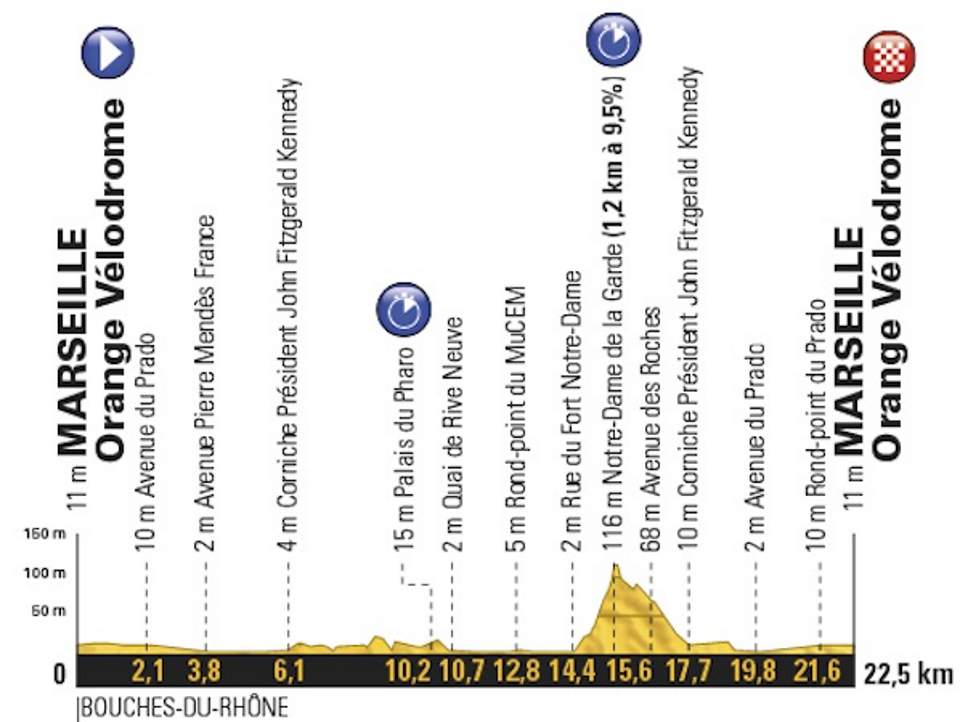Key Stages of the 2017 Tour de France
This year's Tour de France route has less climbs, less time trialling, more sprinters stages and is designed to produce exciting, more aggressive racing
This year's Tour de France is a delight for the Sprinters, with at least 9 stages that could come down to a sprint finish. For the contenders in the General Classification makes for a more complicated situation, having to be sheltered and stay out of trouble on the flat stages which could prove more difficult than envisaged.
Here's our analysis of the key stages for the overall which are likely to be opportunites for attacks to be made, more crucially where time can be gained, or lost.
Stage 1, Saturday July 1st
At 13 kilometres, the opening Individual Time Trial is a flat endeavour along the banks of the river Rhine in the centre of Düsseldorf.
The renowned electronic music band Kraftwerk hailed from Düsseldorf. In 2003 they released an album called Tour de France, which was recorded for the 100th anniversary of La Grande Boucle.
For GC contenders this is an important opening stage to put their time trial abilities to the test and could gain crucial seconds on their rivals on the opening stage.
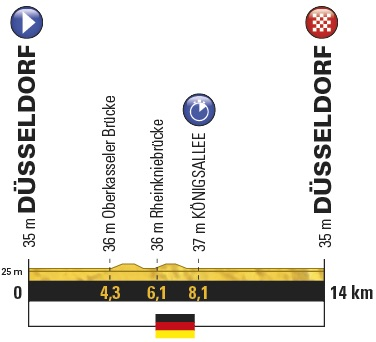
The race heads south through Belgium and Luxembourg for some fairly long and flat stages that will suit the Sprinters. If the wind blows and the conditions are wet, then this could be a very stressful time for the GC contenders.
When the sprinters team wind up the pace this is where crashes are more likely to occur and the GC contenders will be looking to stay out of trouble.
The race reaches France on stage 5.
Contenders for the Yellow Jersey will go head-to-head in the Pyrenees in a 100 km stage from Saint-Girons to Foix with sections approaching a 20% gradient on the slopes of La Planche des Belles Filles and Peyragudes.
Stage 5, Wed July 5th
Starting in Vittel and finishing up at La Planche des Belles Filles, the 160 km stage is an important GC stage and could see the first attacks from the favorites.
The 5.9 kms climb is at an average of 8.5% and presents itself at first mountain top finish in the Tour.
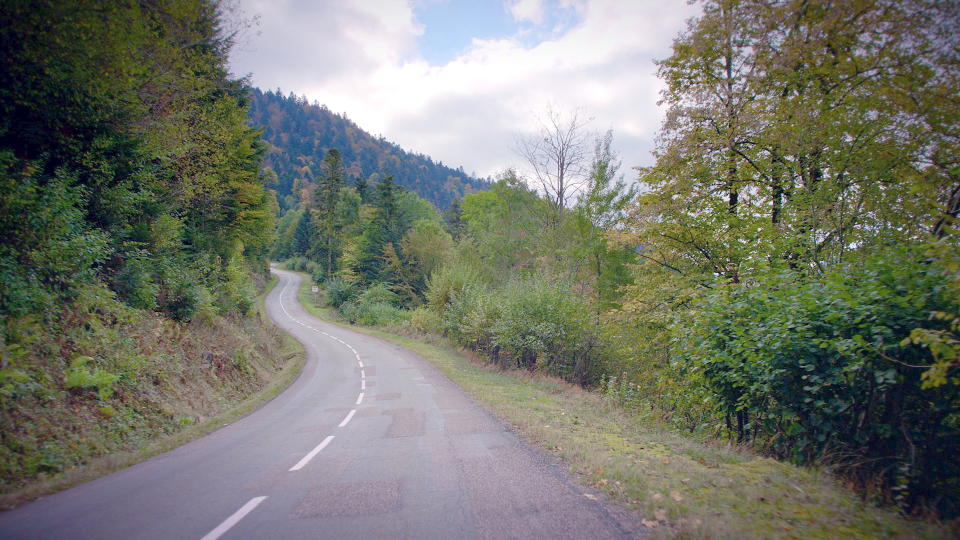
The first three riders on the line take crucial time bonuses of 10, 6 and 4 seconds. Expect fireworks!
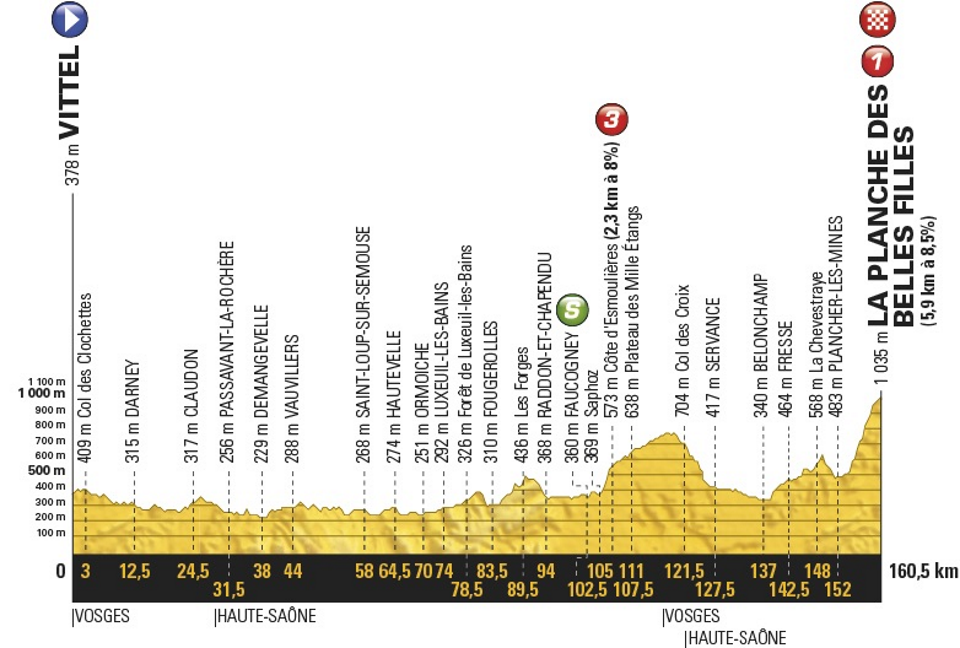
The race continues its journey south and reaches the Alps.
Stage 8, Sat July 8th
Starting in Dole to Station Les Rousses, the 187 km stage. Features the The Col de la Joux, peaking at 1,035 metres, is a 10.4 kilometres ascent of 4.6 %., the Côte de Viry. This is a 7.6 kilometres climb at 5.22%. The last climb is called Montee de la Combe de Laisia Les Molunes, in 11.7 kilometres the riders head for the summit at an elevation of 1,202 metres. The average gradient is 6.4 %.
After cresting the riders have 11 kilometres left to go. No real descent, the finish line is after a rolling section in the ski station of Les Rousses, located at en elevation of 1,107 metres and close to the Swiss border.
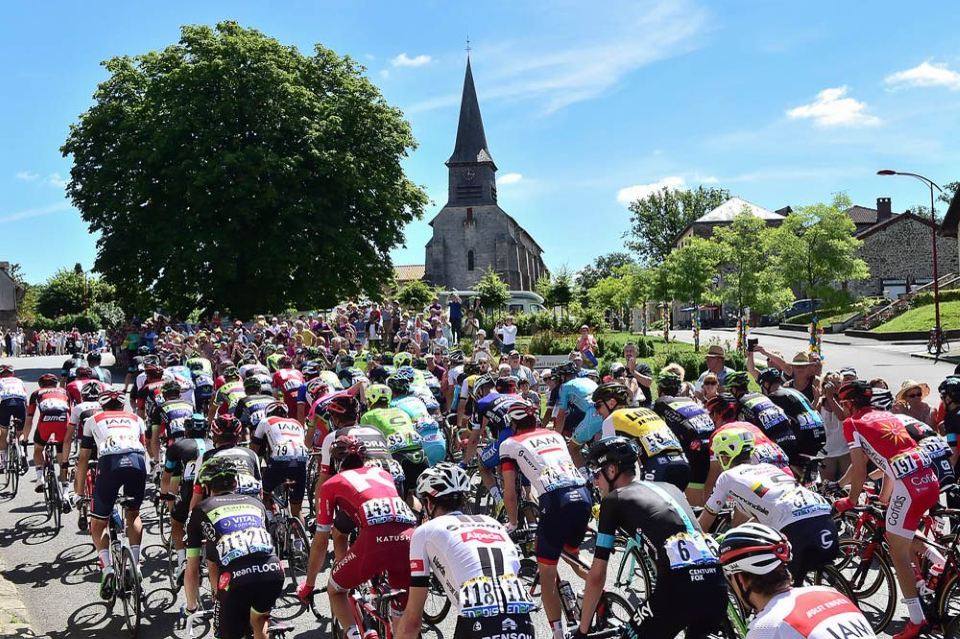
The first three riders on the line take crucial time bonuses of 10, 6 and 4 seconds.
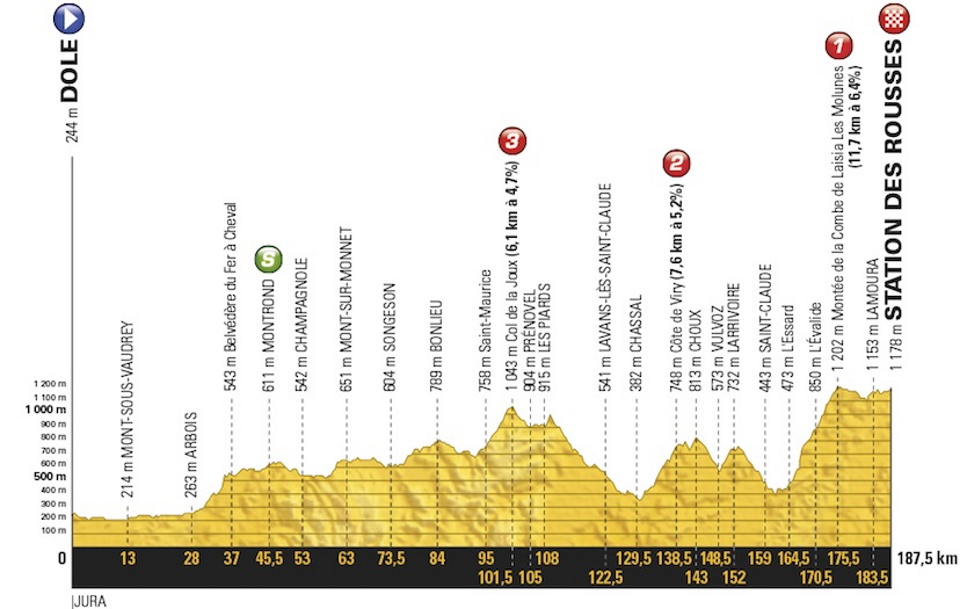
Stage 9, Sunday July 9th
The Queen Stage will tackle the Col de la Biche, Grand Colombier and Mont du Chat, for a total altitude gain of 4,600 m in Jura mountains, a brutal day fpor the peloton.
From Nantua to Chambery is a tough 181km mountain stage, featuring 7 categorized climbs, three of them Haute Category (HC) the hardest difficulty rating.
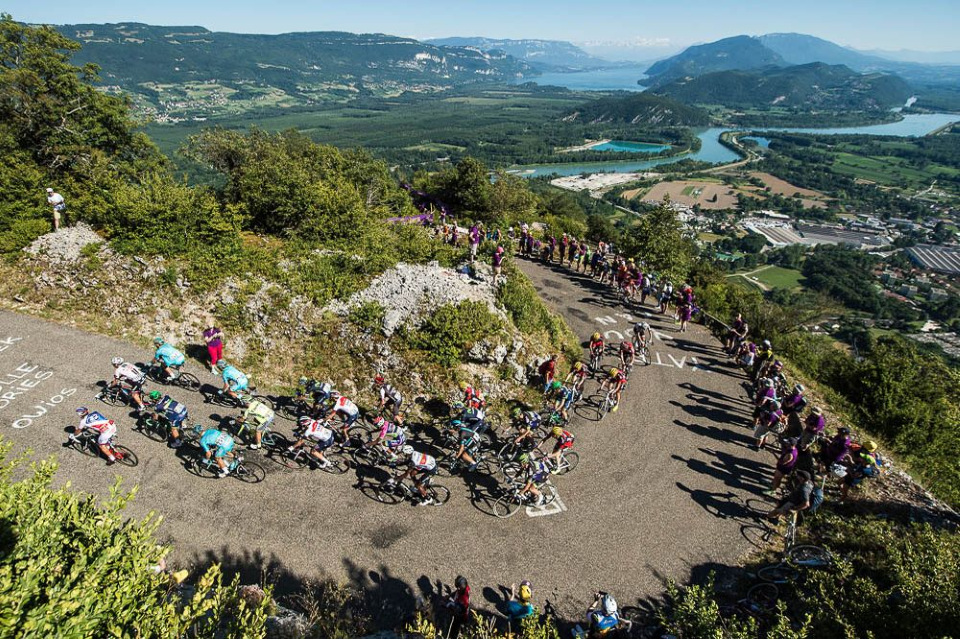
The Col de la Biche is the first HC climb, a 10.5 km 9% average climb, followed afterwards by the more known Grand Colombier at 1,501m its 8.5 kms at an average of 9.9% and see gradients of 22% in places. This is a 400W 40 minute effort for the head of the Peloton.
The final HC climb of the Mont du Chat is the hardest, similar to the Grand Colombier but steeper at 10.3%.
This stage should certainly give us an indication of who the strongest favourites are.
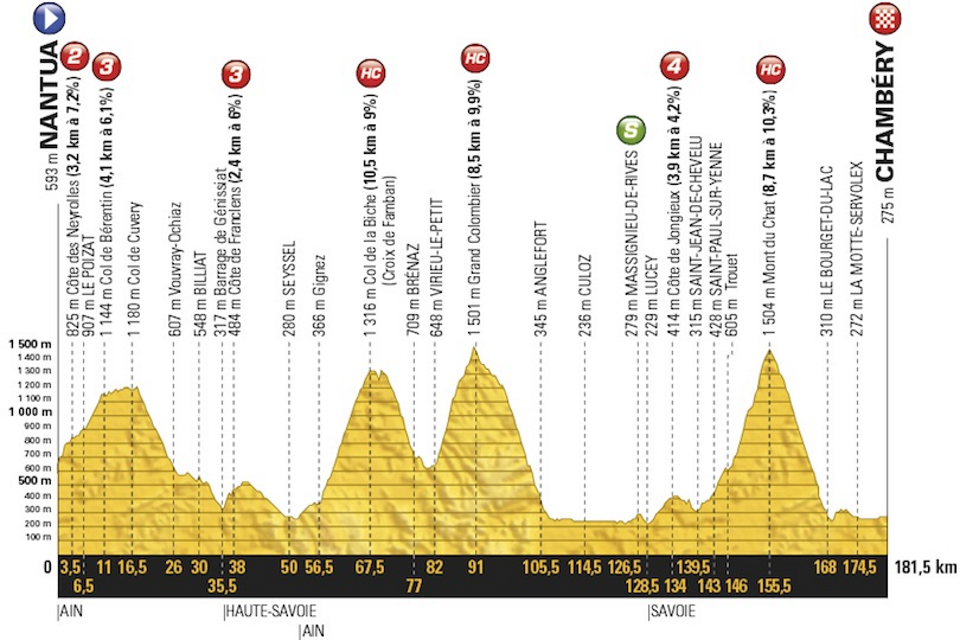
A rest day and two flatter sprint stages lead onto the Pyrenees.
Stage 12, Thurs July 13th
From Pau to Peyragudes, this is a long 214 km mountain stage. It features 6 categorized climbs In the finale of the 12th stage the Col de Peyresourde looms. In fact the climb is the Peyresourde’s twin brother.
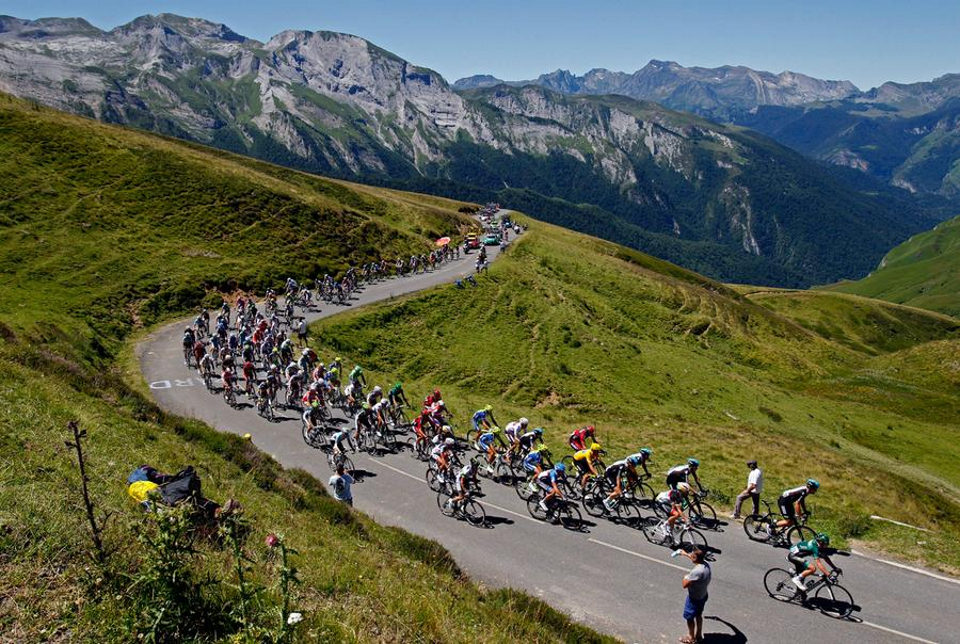
The double-barreled ascent totals 15.4 kilometres at 5.1%, while the last part to ‘James Bond Airport’ is a 2.4 kilometres slog of 8.4%
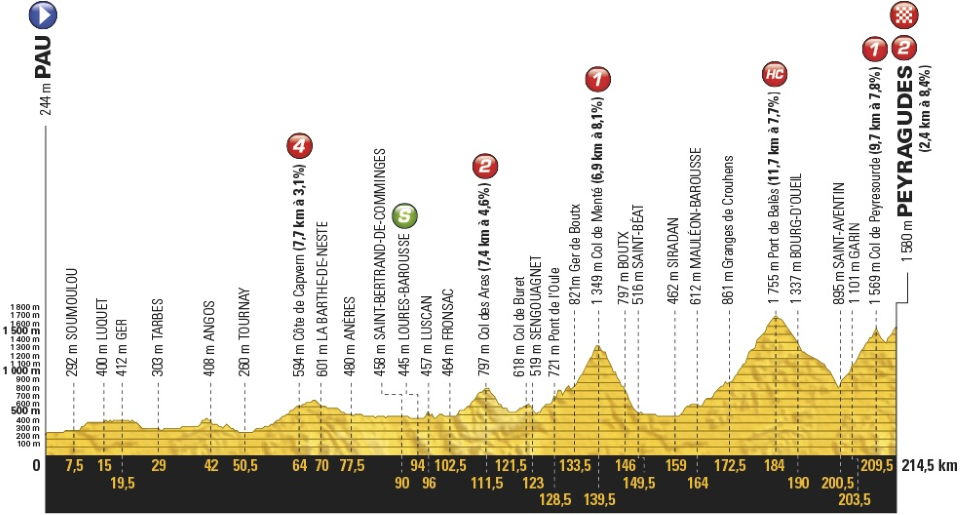
Stage 17, Wed July 19th
Another brutal stage featuring four big hitters, all one after the other.
From La Mure the 183 km stage to Serre-Chevalier, tackles the Col d'Ornon, onto the Col de la Croix de Fer (HC) via the Col du Glandon and then onto the duo of the Col du Télégraphe and the Col du Galibier (HC). The Col du Galibier is one of the highest paved roads in Europe and first featured in the Tour de France in 1911. Col du Galibier is 2,645 metres (8,678 ft) high and the the ninth highest paved road in the Alps and the sixth highest mountain pass. It is often the highest point of the Tour de France.
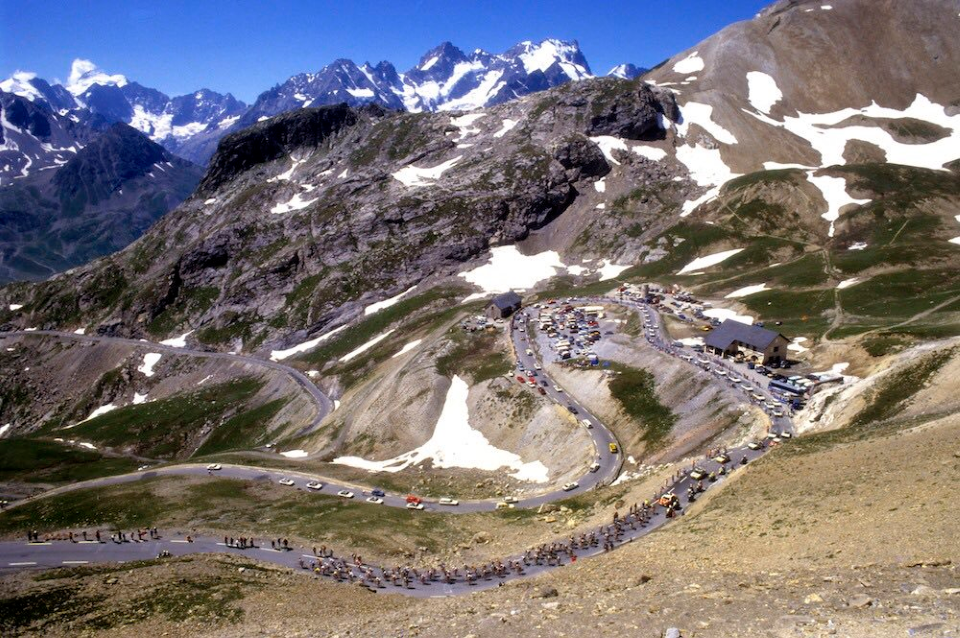
On the south side of the climb is a monument to Henri Desgrange, instigator and first director of the Tour de France. The memorial was inaugurated when the tour passed on 19 July 1949. Whenever the tour crosses the Col du Galibier, a wreath is laid on the memorial.
The "Souvenir Henri Desgrange" is awarded to the first rider across the summit of the highest mountain in each year's tour. In 2006, the prize of 5,000 euros was claimed on the Col du Galibier by Michael Rasmussen.
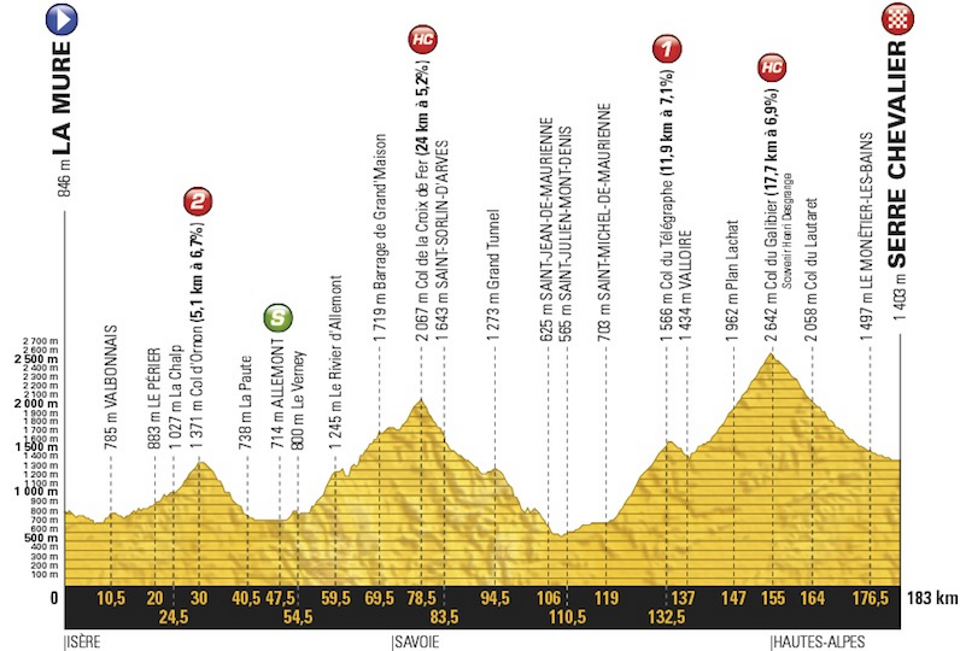
Stage 18, Thu July 20th
If stage 17 wasn't bad, the next stage sees the peloton tackle the first category Col de Vars before the mountain top finish on the top of Col d'Izoard. The Peloton will ascend the south side of the Izoard, through the lunar landscape of the Casse Dessert, where a memorial to Fausto Coppi and Louison Bobet sits proudly by the road side.
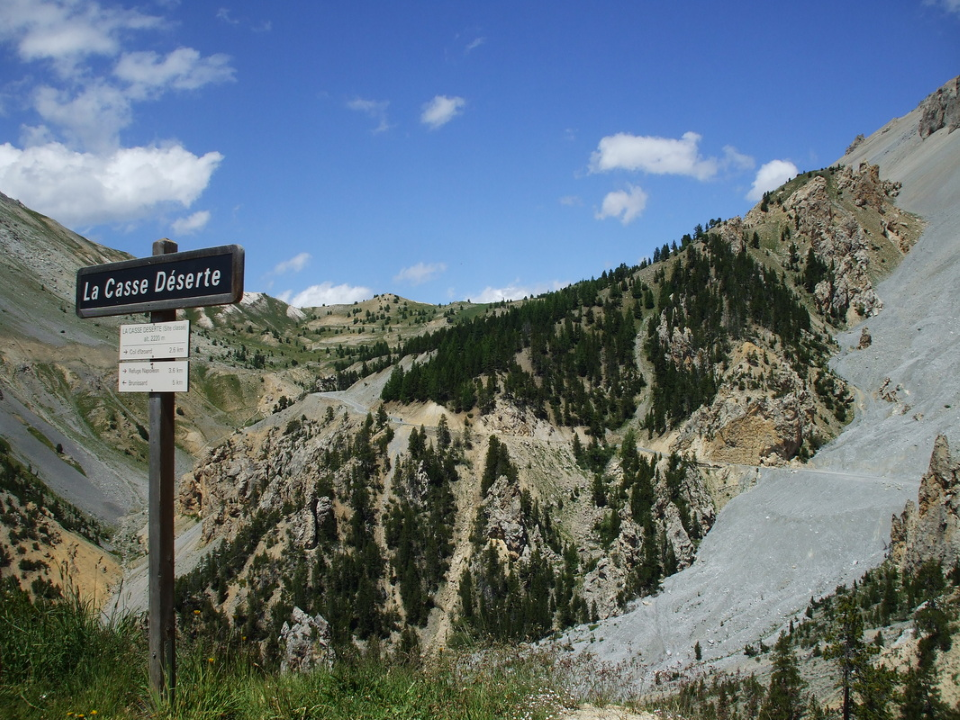
Amateur riders with tackle this stage in the hugely popular Etape du Tour. The 2017 edition of the Etape du Tour will take place on Sunday July 16 on the route for stage 18 of the Tour de France – concluding with the first-ever summit finish on the Col d’Izoard.
The Etape du Tour, which first took place in 1993, sees Gran Fondo and Sportive riders worldwide take on a stage of the Tour de France with over 15,000 amateur cyclists are expected to take part.
Winning this stage will be a career defining moment for the winner.
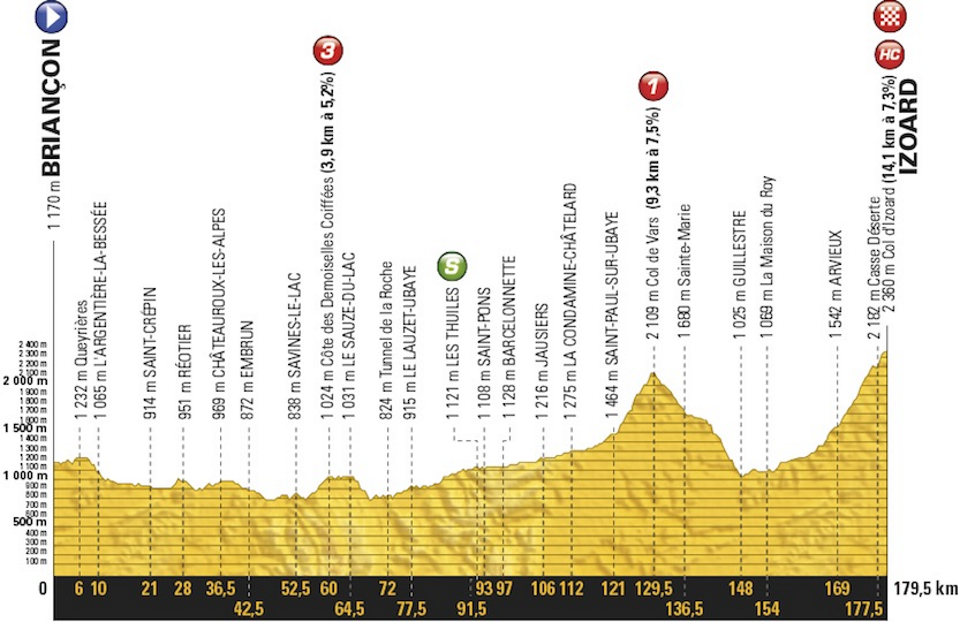
Stage 20, Saturday July 22
The climbers won't have all the fun, the GC contenders will have a final chance to take the Yellow Jersey in the final time trial on the Mediterranean coast , with the finish line right in Marseille's Vélodrome stadium before heading to Paris the day after.
Stage 20 in the Tour de France is an individual time trial of 23 kilometres in Marseille.
In recent years the ITT’s in La Grande Boucle were getting less and less prominent. The 2017 edition opens with a 13 kilometres Chrono race, while this stage brings a route of 23 kilometres – that’s 36 kilometres combined.
This is the final opportunity to close or open up time gaps on the general classification. In a closely fought GC, it’s essential the favorites are at the top of their game to fight for the final podium places.
Indeed this year's Tour has been designed to animate the racing and will be an unforgettable spectacle, don't miss it.
